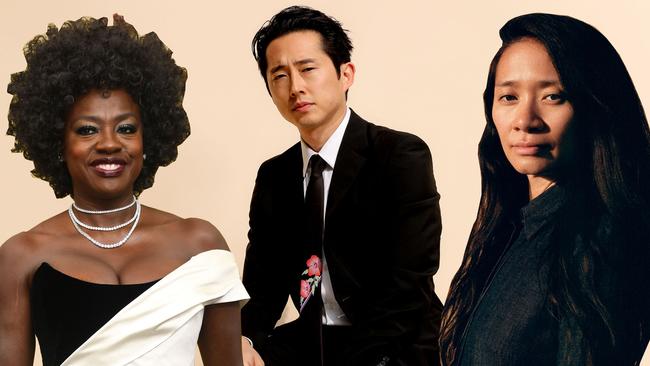
The Chinese filmmaker just became the first woman of colour to be nominated for Best Director for her film Nomadland, a movie about the reality of life on the road starring Frances McDormand. Zhao is the frontrunner to win the Best Director Oscar, which will make her only the second woman in the history of the Academy Awards to take home the prize.
And it’s not the only record that she has broken with this week’s Oscar nominations. Zhao was nominated for four awards: Best Adapted Screenplay, Best Editing, Best Director and, as producer on Nomadland, Best Picture — she’s now officially the first woman to be nominated four times in a single year.
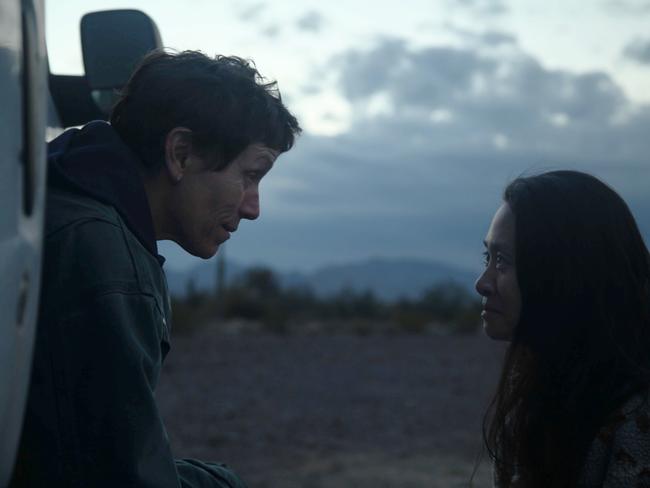
Here are some other firsts: Zhao was nominated in the Best Director category alongside Emerald Fennell, the writer-director behind Carey Mulligan’s Promising Young Woman. Fennell is now the first woman to be nominated for Best Director for her debut film, and together Zhao and Fennell represent the first time that more than one woman were nominated in the category. Their dual presence ups the number of female filmmakers recognised by the Oscars from a paltry five to seven — still not enough, but two steps firmly in the right direction.
The post-pandemic Oscar nominations yielded several moments just like this. Presided over by a more inclusive Academy voting body than ever before — in 2020, some 819 new members including Zendaya, Awkwafina and Lulu Wang were invited to join the ranks of the group in order to boost its diversity — the nominations were record-breaking in several ways.
Riz Ahmed became the first Muslim actor to be nominated in Best Actor for Amazon Prime Video’s The Sound Of Metal; Steven Yeun became the first Asian American Best Actor nominee, for his role in the intimate independent film Minari. Viola Davis became the most nominated black actress of all time after she received recognition for her performance in Netflix’s Ma Rainey’s Black Bottom. She was nominated alongside Golden Globe winner Andra Day for The United States vs. Billie Holiday — the first time two black actresses were nominated in the same category since 1973.
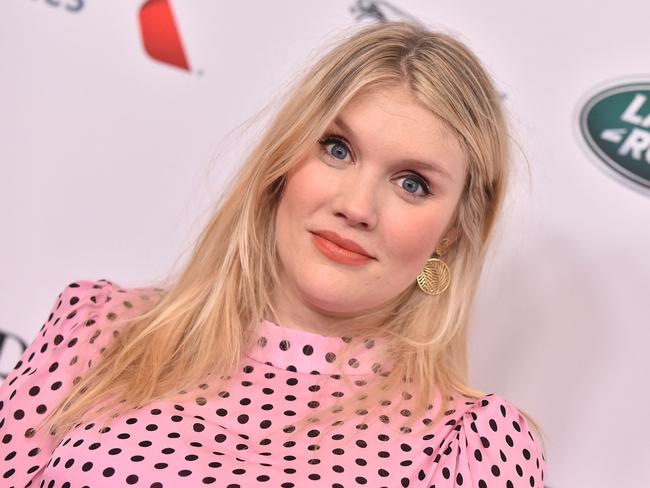
Australian VFX editor Genevieve Camilleri also achieved another near first: she is now only the fourth woman nominated in the Best Visual Effects category in Oscars history, and one of this year’s only Australian nominees. Camilleri, Matt Everitt, Matt Sloan and Brian Cox were recognised for their work on the post-apocalyptic thriller Love and Monsters. Another Australian, Andrew Jackson, was nominated for his work on the VFX team who made Christopher Nolan’s blockbuster Tenet.
Elsewhere, though, Antipodeans were ignored on nomination night. New Zealand cinematographer Lachlan Milne was in the mix for his work on Minari, but was snubbed in the category. Kirk Baxter, editor of Netflix’s Mank, also missed out on a nod, as did screenwriter Luke Davies for his film News of the World. Margot Robbie’s film company LuckyChap did score big, though, with five nominations for their production Promising Young Woman, including three nods alone for Fennell in Best Original Screenplay, Best Director and Best Picture.
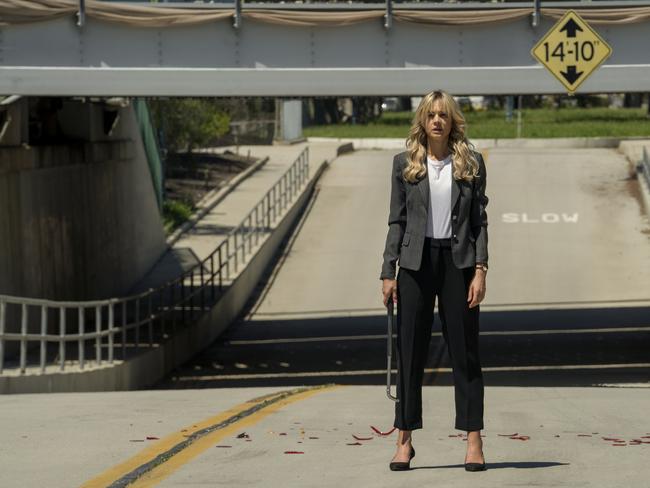
Some other firsts: Borat Subsequent Moviefilm is now the first franchise in several decades to receive screenplay nominations for all of its entries … The other is The Godfather. The actors recognised this year, including Judas and the Black Messiah’s Daniel Kaluuya and Lakeith Stanfield, One Night In Miami’s Lesley Odom Jr and Ma Rainey’s Black Bottom’s Chadwick Boseman, are now officially the most diverse group in Oscars history: nine out of 20 acting nominees for this year’s awards were people of colour.
These firsts are all worthy of celebrating. But there’s still a lot of work to be done. The Best Supporting Actress category was overwhelmingly white: Minari’s Youn Yuh-Jung is the only actress of colour alongside Glenn Close, Olivia Colman, Amanda Seyfried and Maria Bakalova.
Zhao and Fennell might have made history in that Best Director category, but there was no nomination for Regina King, who would have become the first black woman recognised in the category. Instead, the Academy recognised David Fincher, the director of Mank. (The category was rounded out with Minari’s Lee Isaac Chung and Thomas Vinterberg, the Danish director of Another Round.)

Mank, streaming now on Netflix, ended up being the most decorated on nomination night, with 10 nods including Best Picture, Best Actor, Best Supporting Actress, Best Score, Best Cinematography and Best Production Design. It led the nominations, but there’s no guarantee it will win anything at the Oscars in April — remember Netflix’s other big awards season passion project from a storied filmmaker The Irishman? That movie also received 10 nominations at the 2020 ceremony and walked away with nothing.
Mank may not fare quite so badly: the movie is celebrated in a few contested categories, including Best Cinematography and Best Production Design. Maybe Amanda Seyfried could sneak in and win Best Supporting Actress — an award that is currently up for grabs, given how wild and varied the nominations in that category have been across the season.
There’s a world in which a different actress could win at each major awards ceremony: Jodie Foster at the Golden Globes (she wasn’t even nominated at the Oscars), Maria Bakalova at the Critics Choice Awards, Youn Yuh-Jung at the BAFTAs, Glenn Close at the SAGs and Seyfried or Olivia Colman (for The Father) sneaking in at the Oscars at the last minute. Given how locked in a few of the other categories appear to be — the late Chadwick Boseman is absolutely winning Best Actor, and it’s looking like Daniel Kaluuya is a certain bet for Best Supporting Actor, too — it’s fun to have an awards race that still has a little bit of heat.
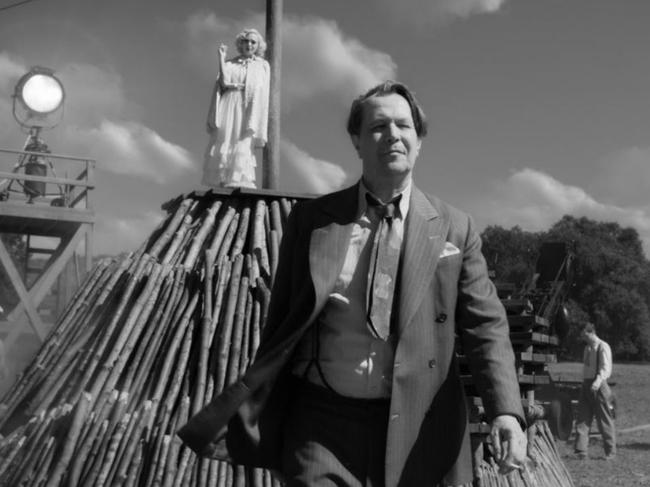
For people who love movies, these thought experiments are thrilling — and so are all those firsts. It’s exciting to see so many records being broken on Oscars nomination morning, and it will be even more of a thrill when they’re broken again on Oscars night. But the thrill comes with a little frustration too.
The Academy Awards have been going for almost a century, and it took more than 92 years for an actor of Pakistani descent, or of Asian American descent to be nominated in Best Actor. It took more than 92 years for more than two female filmmakers to be recognised in the same year. Hopefully, on Oscars night in April, those two female filmmaker firsts will clinch a second: if Zhao or Fennell wins, they’ll be only the second female Best Director winner in history. The first was Kathryn Bigelow, who won the award for her film The Hurt Locker more than a decade ago. Let’s hope we don’t have to wait another decade for a third.




Chloe Zhao. You’re going to want to remember that name.